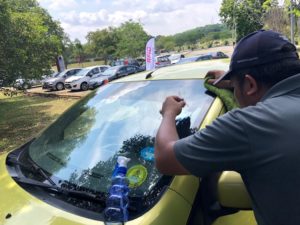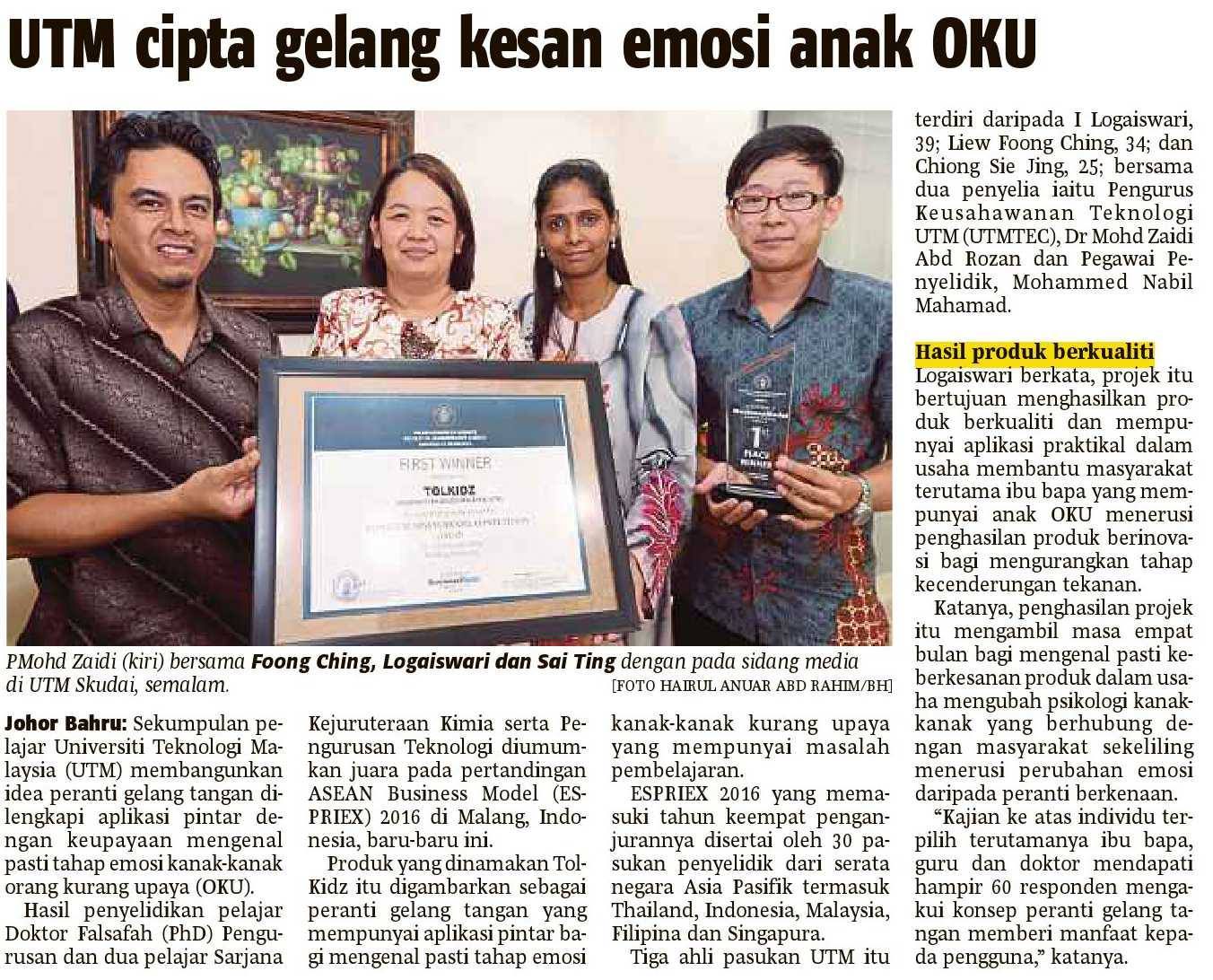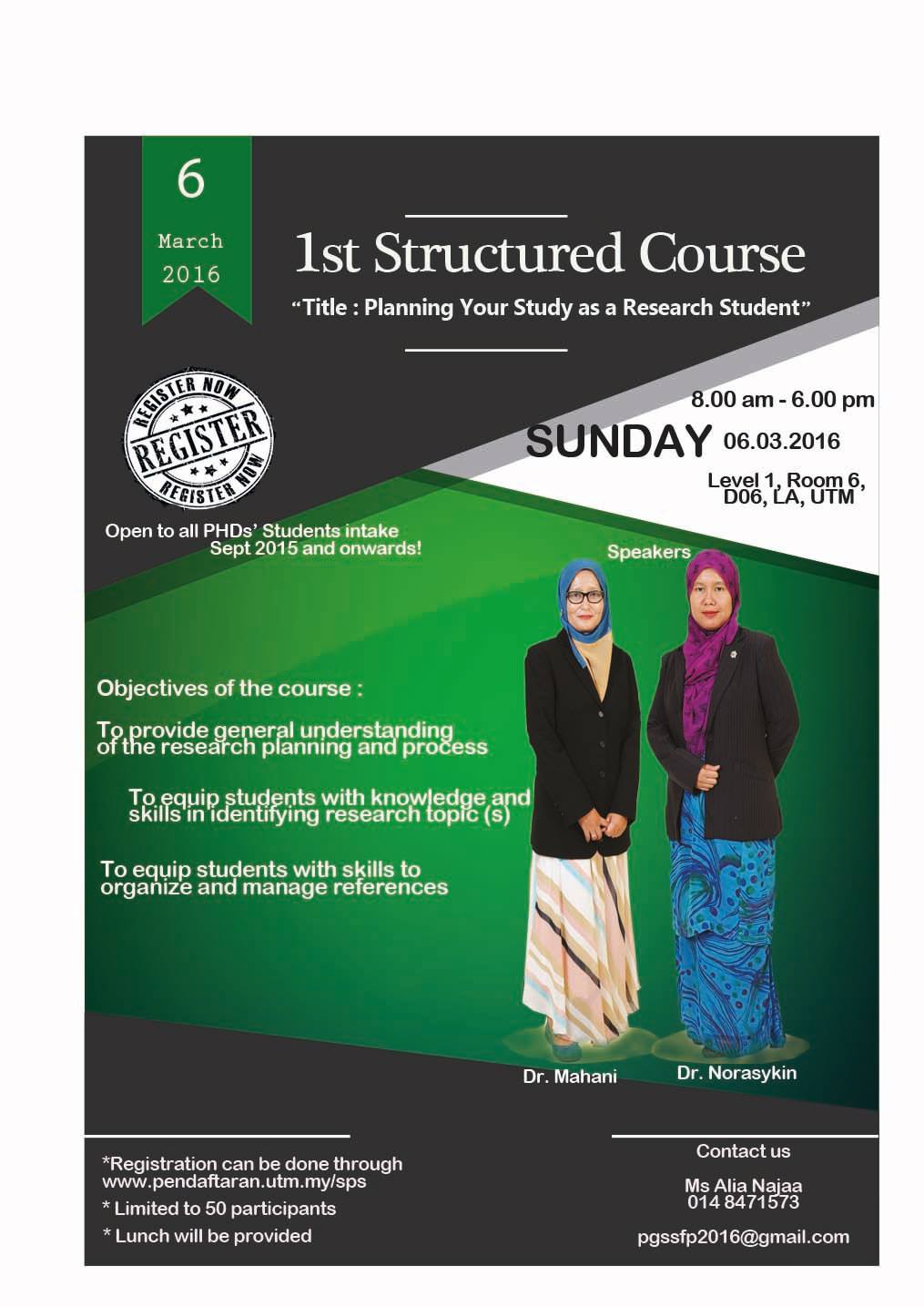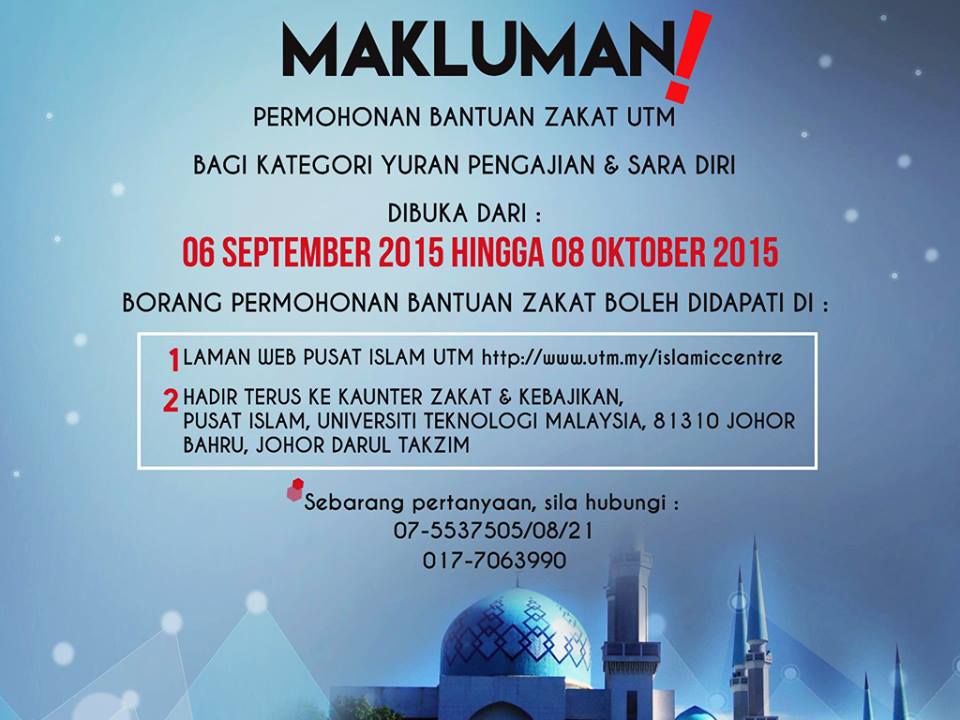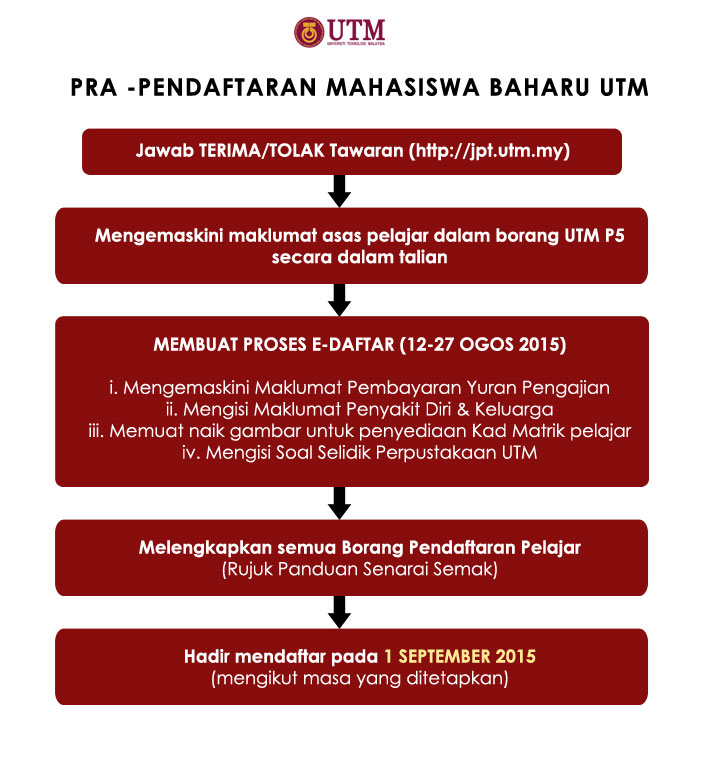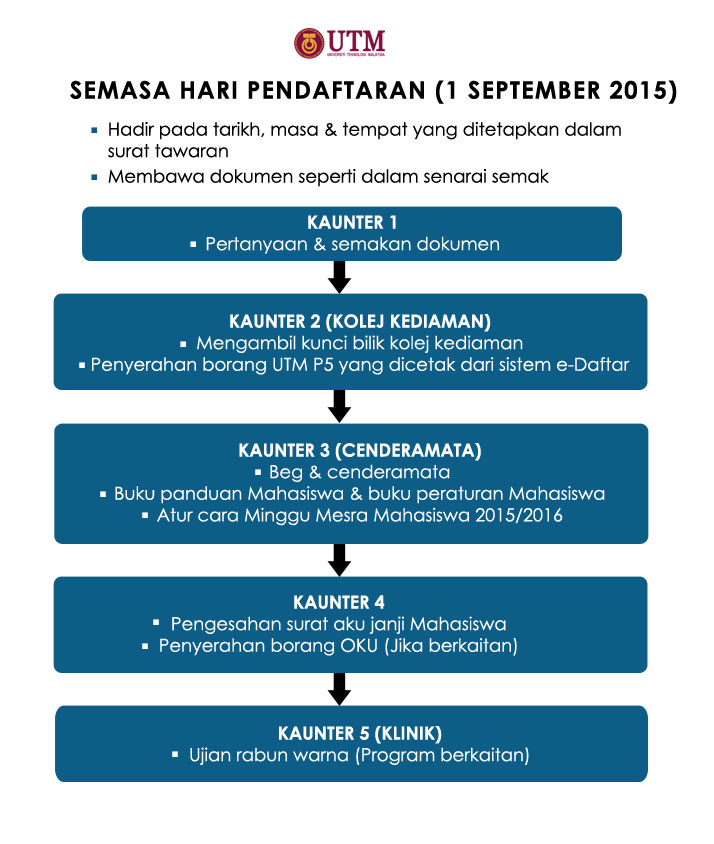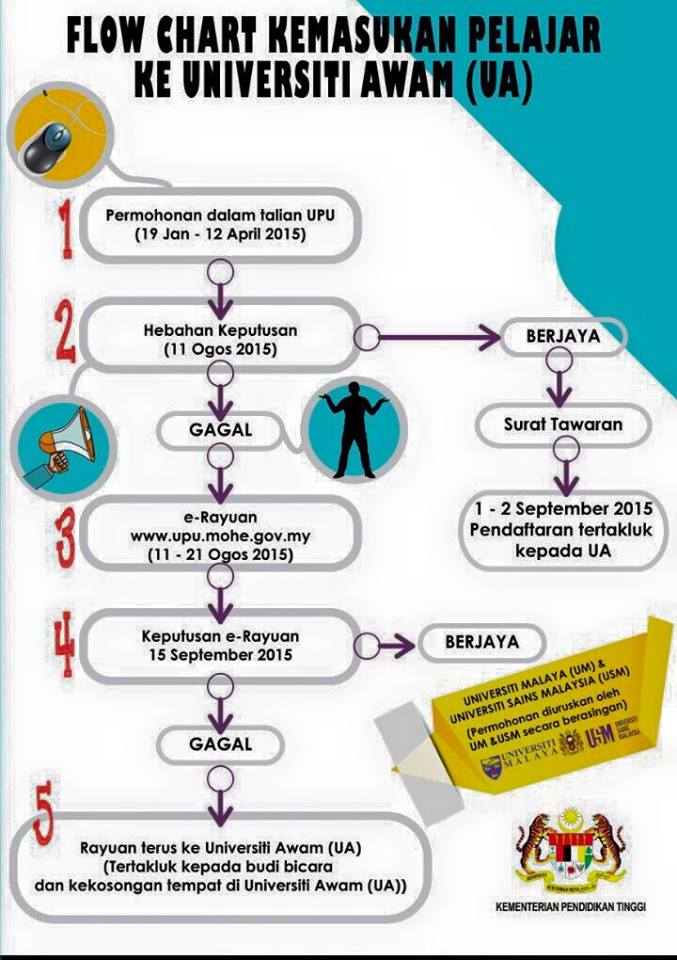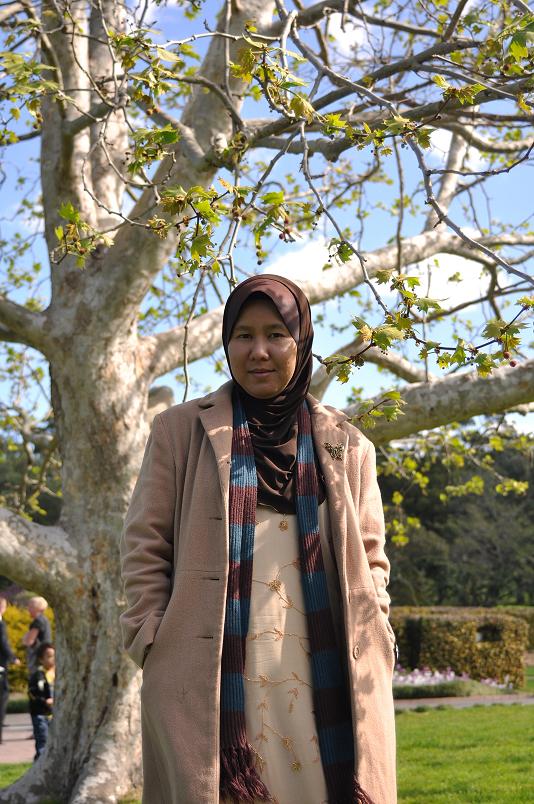Walk in pada hari pemasangan sticker RFID di Laman Menanti Tasik Ilmu, UTM pada 27-28 Mac 2019 dari jam 9.00 pagi hingga jam 5.30 petang.
Sila pastikan anda:
a) Memuat turun aplikasi Touch ‘n Go ewallet di Apple Apps Store dan Google Play Store;
b) Mendaftar maklumat peribadi dan maklumat kenderaan di https://www.touchngo.com.my/html/preregisterrfid.aspx dan https://rfidregister.touchngo.com.my/#/woheader/login setelah menerima email pengesahan;
c) Akaun Touch ‘n Go e Wallet yang telah didaftarkan HENDAKLAH ditunjukkan di pusat pemasangan;
d) Kenderaan yang dibawa ke pusat pemasangan HENDAKLAH kenderaan yang didaftarkan di RFID Registration Portal;
e) Membawa bersama dokumen berikut semasa di pusat pemasangan;
- Kad pengenalan asal dan salinan atau Lesen Memandu (warganegara) atau Passport (bukan warganegara);
- Salinan Lesen Kenderaan Motor (Grant) atau Insurans Cover Note yang sah dan terkini;
- Surat ‘Authorisation Letter’ daripada pemilik kenderaan ( sekiranya kenderaan tidak dimiliki oleh pengguna berdaftar akaun ewallet Touch ‘n Go
